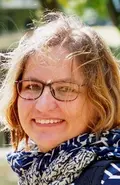Meeting places of the MfS and places of dissidence in Erfurt
Duration
01/2019
- 12/2022
Funding
Bundesministerium für Bildung und Forschung (BMBF)
Duration
10/2023
- 09/2025
Funding
Bundesministerium für Bildung und Forschung (BMBF)
Project management
Team
Marian Herzog
Research Assistants
Isabelle Lamperti
Main project
- Dictatorship Experience and Transformation Prof. Dr. Christiane Kuller
Related projects
There is hardly any academic literature on the "meeting places of the MfS", so-called "conspiratorial flats" (konspirative Wohnungen, KW), which (ostensibly) served the exchange of conspiratorial knowledge between the State Security and its informal staff (cf. Heinrich 2006). Since they systematically linked surveillance and everyday social life, today they open up a very unusual micro-historical approach to the history of everyday life, rule and memory in the GDR. In addition to the research and critical analysis of surveillance protocols, etc., the question is also what character the KWs had: Were they places of betrayal or spaces of a complex interplay where the MfS ultimately only learned what it was told?
This perspective on the practice of political control is supplemented by the memory of those "places of dissidence" where opposition members could (conspiratorially) exchange information. Both structural spaces are analysed in their (in)direct context. This inevitably agonistic discourse of memory is not limited to the last two decades of the GDR, but also takes into account the decades of transformation: To what extent do or did certain places function as collective or individual sites of memory, for what reasons, in what respects and for whom? Inevitably, it is also about collective memories and a critical examination of the images of the lived GDR on site, i.e. about "the (partial) social truth of validity of historical traditions" and about "the complexity and changeability of the thought patterns in which the GDR past appears in our present" (Sabrow). Ideally, the project can show a change in memories and politically and culturally interpreted topography over time and be used as a model for other cities.

